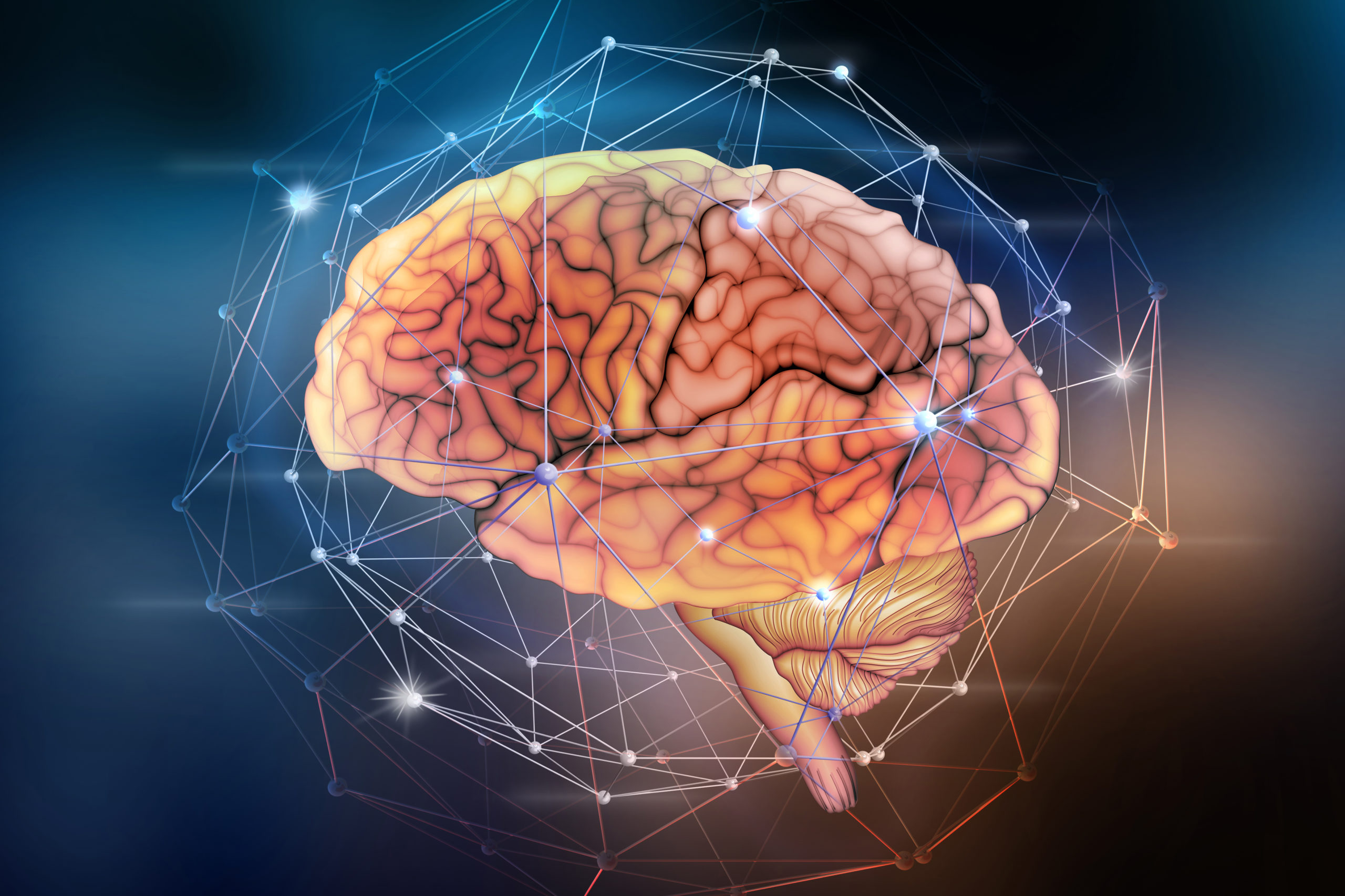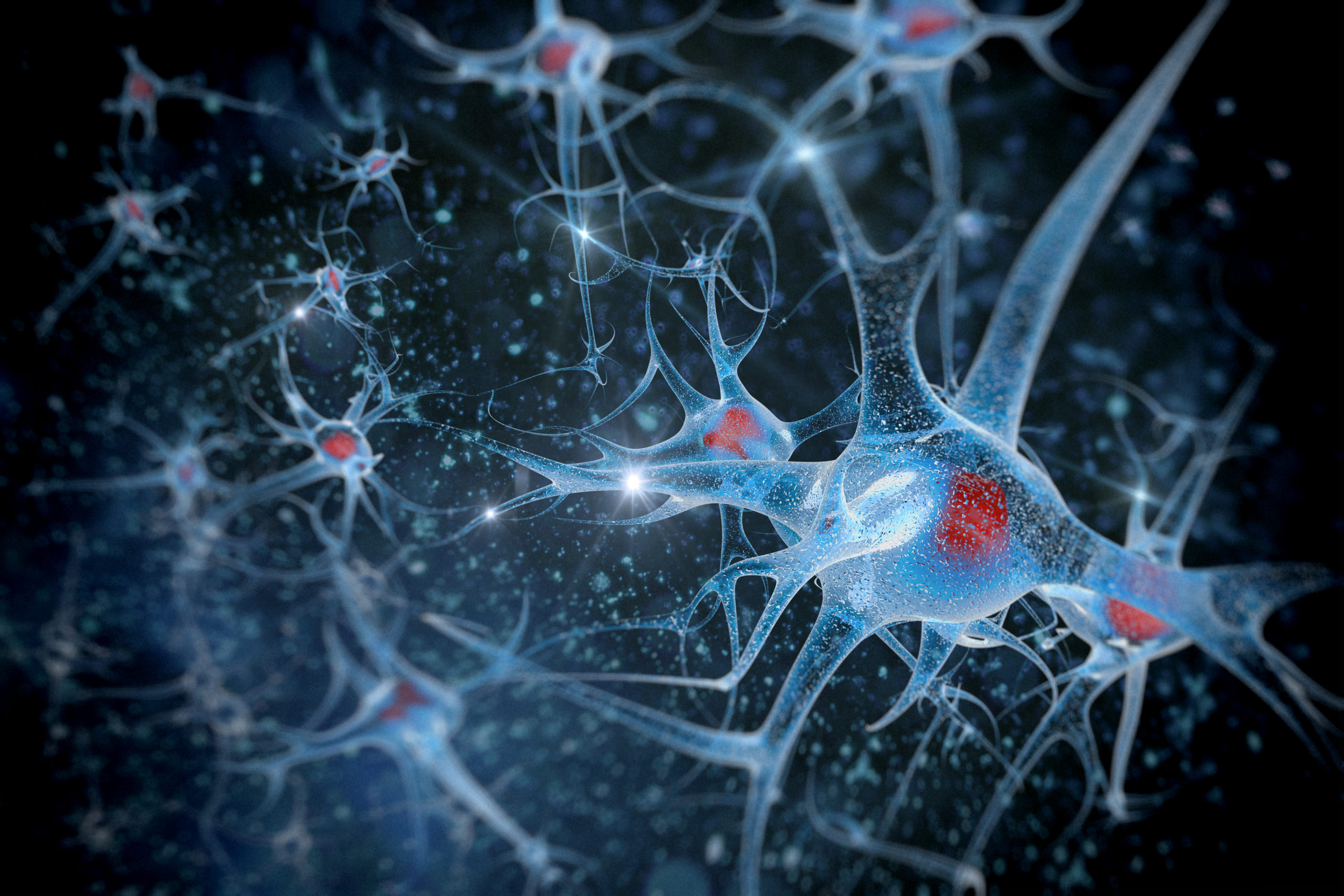Imagine you hold the key to halting neurodegenerative diseases in your hands. That’s not as far-fetched as it sounds. You’ve got a powerful ally within your own cells called NAD+. It’s making waves for its potential role in protecting against these debilitating conditions. Dive into this intriguing world of NAD+ with us, and you’ll discover why scientists are excited about its therapeutic promise.
Understanding NAD+ and Its Biological Significance
It’s crucial to understand NAD+ and its biological significance as it plays a key role in various cellular processes. You see, NAD+, or nicotinamide adenine dinucleotide, is a coenzyme found in all living cells. It’s involved in redox reactions, carrying electrons from one reaction to another.
NAD+ synthesis is an essential process that occurs within your body. It forms part of the metabolic pathway which converts nutrients into energy. However, research has shown that levels of NAD+ decline with age, and this drop off is associated with various health issues including neurodegenerative diseases.
Now you might be wondering how you can maintain adequate levels of NAD+. That’s where NAD+ supplementation comes into play. Several studies have provided evidence indicating that supplementing with NAD+ can replenish these declining levels and potentially improve several aspects of health and slow the aging process.
However, while there’s promise in these findings, remember that further research is required before we can make definitive conclusions about the benefits of NAD+ supplementation for humans. Always consult a healthcare professional before starting any new supplement regimen.
The Link Between NAD+ and Neurodegenerative Diseases

There’s a significant connection between this coenzyme and brain disorders that cause cognitive decline. As your brain ages, the levels of NAD+-a crucial coenzyme in cellular metabolism-gradually decrease. This deficiency has been linked to neurodegenerative diseases like Alzheimer’s and Parkinson’s.
NAD+ plays an essential role in maintaining neuronal health by moderating energy metabolism, controlling oxidative stress, and regulating DNA repair mechanisms. When there’s a shortage of NAD+, these processes falter, leading to neuronal damage and eventually cognitive decline.
Research shows that NAD+ supplementation can help replenish its diminishing levels in an aging brain. By doing so, you’re effectively boosting the metabolic activity within neurons while also enhancing the capacity for DNA repair. Consequently, this can slow down or even reverse signs of neurodegeneration.
However, it’s important to note that while promising, most scientific evidence supporting the benefits of NAD+ supplementation comes from experimental models. More extensive human trials are necessary before advocating widespread use for preventing or treating neurological disorders associated with aging.
In essence: supplementing with NAD+ could potentially offer a therapeutic strategy for combating age-related cognitive decline-but more research is needed to confirm its efficacy and safety.
Role of NAD+ in Neuroprotection
You’re about to delve into the critical role that NAD+ plays in maintaining brain health, with particular focus on its capacity to prevent neurodegenerative diseases. We’ll explore compelling evidence elucidating the neuroprotective mechanisms of NAD+, showcasing how this coenzyme bolsters neural resilience against harmful stimuli. You’ll see how understanding these mechanisms could potentially lead us to innovative therapeutic strategies for combatting devastating neurological conditions like Alzheimer’s and Parkinson’s disease.
NAD+ in Brain Health
We’ll delve into how NAD+ contributes to brain health and its potential protective effects against neurodegenerative diseases. NAD+ supplementation and NAD+ diet modification are key strategies in maintaining your brain’s health.
NAD+, or nicotinamide adenine dinucleotide, is a critical coenzyme in the body involved in various metabolic processes. It plays an important role in energy production, DNA repair, immune response regulation, and cell death.
The table below shows two strategies that could effectively increase your NAD+ levels:
| Strategy | Description |
| NAD+ Supplementation | Involves taking specific supplements that boost the levels of NAD+. |
| NAD+ Diet Modification | Incorporates foods rich in precursors of NAD+, like tryptophan & niacin. |
Preventing Neurodegenerative Diseases
In preventing conditions that impact the brain, such as Alzheimer’s or Parkinson’s, it’s crucial to consider strategies like diet modification and supplementation. Dietary sources of NAD+, including dairy products, yeast, whole grains and fatty fish are beneficial. They’re fortified with nicotinamide riboside (NR), a precursor of NAD+ that enhances its production in your body.
Moreover, exercise impacts NAD+ by boosting its levels. Regular physical activity stimulates a protein called PGC-1alpha which is involved in the biosynthesis of NAD+. This effect can foster neural resilience against age-related cognitive decline and neurodegenerative diseases.
Neuroprotection Mechanisms of NAD
Moving on from prevention, let’s delve into the neuroprotection mechanisms of NAD+. So how does NAD+ supplementation aid in cellular resilience?
1. Energy Production: NAD+ is crucial for mitochondrial health and plays a significant role in converting food into energy.
2. DNA Repair: It’s an important factor in activating proteins that repair damaged DNA.
3. Gene Expression: NAD+ influences gene expression related to cell aging and inflammation.
4. Cell Signaling: The molecule acts as a significant signal transmitter within cells.
These functions underline the importance of maintaining optimal levels of this vital coenzyme. Research evidence supports that boosting NAD+ levels promotes neuronal health, thereby defending against neurodegenerative diseases. This highlights the potential therapeutic benefits of supplemental strategies aimed at increasing NAD+ availability within neurons.
Scientific Research Supporting the Neuroprotective Role of NAD
You’ll find a wealth of scientific research that supports the neuroprotective role of NAD+ in preventing neurodegenerative diseases. In fact, there’s a critical link between NAD+ deficiency consequences and the onset of these debilitating conditions. Low levels of this essential molecule can lead to mitochondrial dysfunction, cellular damage and ultimately neuronal loss.
NAD+, or Nicotinamide Adenine Dinucleotide, is instrumental in maintaining cellular health. It facilitates energy production, DNA repair, gene expression and cell signaling – functions central to neuron survival. When there’s an imbalance – when NAD+ levels drop too low – your neurons struggle to perform these vital tasks efficiently.
But here’s where it gets interesting: studies suggest that boosting NAD+ levels through supplementation could offset these detrimental effects. This is where we see the tangible benefits of NAD+ supplementation come into play. By supporting the restoration of normal cellular function and providing neuroprotection, you’re effectively erecting a barrier against neurodegeneration.

Potential Therapeutic Applications of NAD+ in Neurodegenerative Conditions
You’re about to delve further into the potential therapeutic applications of Nicotinamide Adenine Dinucleotide (NAD+) in neurodegenerative conditions. Specifically, you’ll explore how NAD+ could play a significant role in the treatment of Alzheimer’s disease and what potential it holds for Parkinson’s disease. This discussion will include detailed explanations of medical concepts, evidence-based conclusions, and use of scientific jargon to provide an in-depth understanding of these complex topics.
NAD+ in Alzheimer’s Treatment
In Alzheimer’s treatment, it’s believed that NAD+ can potentially play a significant role. The connection between NAD+ supplementation effects and Alzheimer’s diagnosis improvement is becoming increasingly clear.
1. NAD+ Boosts Cellular Energy: It enhances mitochondrial function which is often impaired in Alzheimer’s patients.
2. Neuron Protection: NAD+ has neuroprotective properties, potentially guarding neurons from the damaging effects of amyloid-beta plaques.
3. DNA Repair Enhancement: NAD+ assists in DNA repair processes, mitigating damage caused by oxidative stress common in Alzheimer’s disease.
4. Improving Cognitive Function: Regular intake of NAD+ boosters may help improve cognitive function in Alzheimer’s patients.
These potential benefits provide hope for better management and treatment strategies against this debilitating disease. As research progresses, your understanding of these mechanisms will deepen.
Parkinson’s Disease: NAD+ Potential
After exploring the potential role of NAD+ in Alzheimer’s treatment, let’s pivot to its potential impact on Parkinson’s Disease (PD) progression. PD is a neurodegenerative disorder characterized by the death of dopamine-producing neurons. Emerging research suggests that boosting NAD+ levels might slow this neuron loss. However, establishing optimal NAD+ dosage recommendations is complex due to variability in individual absorption and metabolism rates.
Studies suggest that replenishing NAD+ can help restore mitochondrial function, potentially slowing the progression of PD. But bear in mind, these are early days; further research is needed before definitive conclusions can be drawn on NAD+’s role in PD management. Therefore, while considering any supplementation plan related to neurodegeneration, you should always consult a healthcare professional for personalized advice.
Future Perspectives on NAD+ Research in Neurodegenerative Diseases
Looking ahead, there’s a ton of potential for NAD+ research to revolutionize our understanding and treatment of neurodegenerative diseases. Emerging studies are demonstrating the therapeutic relevance of modulating NAD+ levels in various disease contexts. Let’s delve into the future perspectives on this exciting biomedical frontier.
1. NAD+ dosage implications: The effective dosage is crucial for any treatment plan. Researchers are working tirelessly to determine the optimal NAD+ dosage that maximizes benefits while minimizing potential side effects.
2. Clinical trials advancement: We’re witnessing significant strides within clinical trials exploring NAD+’s role in combating neurodegeneration, with promising early results indicating increased neuronal survival.
3. Development of novel therapeutic strategies: As we deepen our understanding of the molecular mechanisms governing NAD+-mediated protections against neural damage, you can anticipate innovative treatment approaches harnessing these insights.
4. Personalized medicine approach: With growing evidence suggesting individual variations in response to NAD+, we may see personalized protocols based on patient-specific responses.

Frequently Asked Questions
What Are Some Common Symptoms of Neurodegenerative Diseases?
You’ll often notice symptoms like memory loss, mood changes, and difficulty with movement as neurodegenerative diseases progress. Genetic influences can exacerbate these symptoms, making disease progression tracking crucial for managing your health.
Are There Any Lifestyle Changes That Can Increase Nad+ Levels in the Body?
Yes, you can boost your NAD+ levels. Dietary influences like consuming foods rich in vitamin B3 and regular exercise impact NAD+ production positively. So, tweak your lifestyle for better neuro health.
Is There a Specific Age or Demographic That Is More Susceptible to Neurodegenerative Diseases?
Yes, disease prevalence in neurodegenerative disorders typically increases with age. Elderly populations are more susceptible due to genetic predisposition and accumulated environmental factors. Certain demographics may also have a heightened risk depending on their genetics.
Besides Neuroprotection, What Are Some Other Health Benefits of Nad+?
Besides neuroprotection, NAD+ boosts your metabolism and slows aging. It’s essential in energy production, DNA repair, and cell survival. So, it isn’t just brain health-it impacts overall wellness and longevity too.
Can Nad+ Supplementation Potentially Have Any Adverse Effects?
Yes, NAD+ supplementation can have adverse effects. You’ve got to consider supplement interaction risks and follow dosage guidelines. Too much can cause nausea, fatigue, headaches, indigestion, or even potential interactions with other medications.
